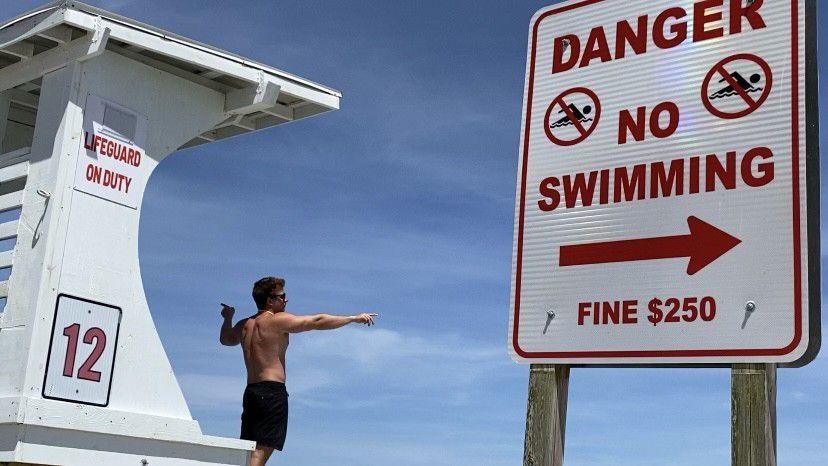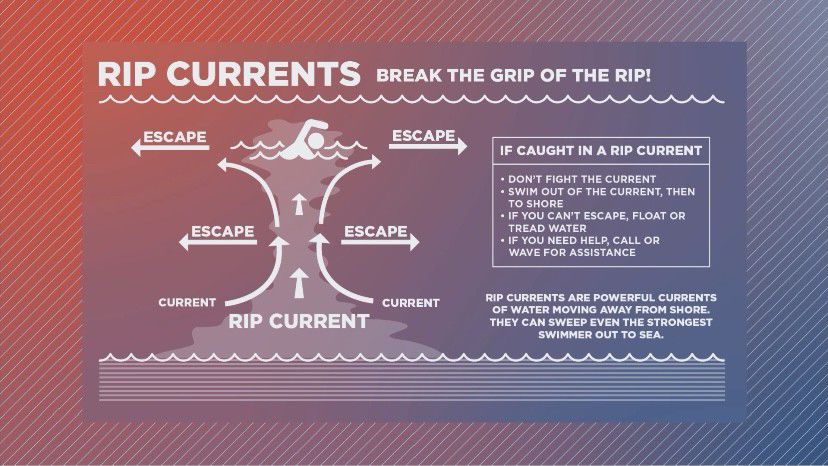From the lakes of the mountains to the beaches of the coast, the Tar Heel State has plenty of ways to stay cool this summer. But anytime you’re near a body of water, things can get dangerous.
According to the National Weather Service, rip currents are the top weather related killer on the coast
Above average activity is predicted this hurricane season, meaning the risk for rip currents increases
Beaches along the coast are staffed with ocean rescue teams, like the Wrightsville Beach Ocean Rescue Team, whose competition team has won regional and national lifesaving competitions
Lieutenant Mo Peacock has been with the Wrightsville Beach Ocean Rescue Team for 14 years now, and he’s seen firsthand just how quickly a day at the beach can take a turn for the worst.

“I’ve had my fair share of rescues,” said Peacock. “You know, we’ve had people we’ve pulled out who weren’t breathing or who didn’t have a heartbeat.”
That’s why the ocean rescue team is so essential.
“These guys out here, they have the most important job,” said Peacock. “They have their eyes on the water from 10 to 5 p.m. every single day, they don’t take a lunch break, they’re working, keeping the beach patrons safe out here.”
After this year’s beach renourishment project, there’s an extra one million cubic yards of sand, making the beach about 200 feet wider, and that comes with concerns.
“We have a lot more people to come out and enjoy the beach,” said Peacock. “But that means we have more people to watch as well.”
But Peacock says he and his team can handle it, after all, they’ve won regional and national lifesaving competitions. That expertise is necessary, especially when dealing with potentially deadly situations like rip currents.

The National Weather Service says rip currents are the number one weather related killer in the coastal Carolinas, with about eight rip current related drownings a year.
Peacock says he’s seen how dangerous these currents are and warns against not using caution.
“It’s a pretty day outside, but if we have a nice offshore breeze going on, your chances are getting in a rip current are greater,” explained Peacock. “Even though the ocean looks super inviting.”
Our meteorologists are expecting above average activity this hurricane season. That means the risk for rip currents will also increase.
If you do get caught in a rip current, it’s important not to panic. Try to swim out of the rip current sideways instead of directly to shore. If you can, signal to a lifeguard for help.
You can also check in with a lifeguard or check the caution flags at the lifeguard stands to determine if the water is safe for swimming.









